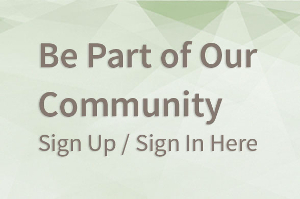BK Blog Post
Engagement Gone Wrong
 Posted by
Jeevan Sivasubramaniam,
Managing Director, Editorial,
Berrett-Koehler Publishers Inc.
Posted by
Jeevan Sivasubramaniam,
Managing Director, Editorial,
Berrett-Koehler Publishers Inc.
All organizations institute change processes at some point, and most do it very poorly -- which is what compelled author Richard Axelrod to write "Terms of Engagement" in the first place.
Here, Richard lists The Five Ways Organizations Mess Up Engagement (Despite Their Best Efforts):
1. Ignore unfairness
Everyone has a fairness detector. When it reads unfair, you disengage. Leaders who award themselves bonuses while they lay off thousands promote unfairness. Leaders who treat people badly yet remain in leadership positions set off unfairness alarms. When your fairness detector reads unfair, the innovative and collaborative part of your brain shuts down. Not good if you want a productive organization.
2. Create thermometer solutions
A leadership team was upset about the low employee-recognition scores from their employee engagement survey. They proceeded to create a new employee-recognition program. One year and another survey later, employee-recognition scores remained unchanged. This is a typical thermometer solution ¢Å½ ¯you read the results and create the solution without understanding the underlying cause. Had the leadership team reviewed the results with employees, they would have learned that a simple thank you would have sufficed.
3. Increase engagement gaps as the few decide for the many
Have a tough problem? Find a sponsor, hire a consulting firm, and create a solution. Then worry about “buy-in.” In most corporations, this is the way change happens. In this scenario, leaders and consultants are highly engaged in challenging work. Meanwhile, the engagement gap increases as employees sit on the sidelines and worry about what “they” are going to do to “us.” The engagement gap shrinks when you widen the circle of involvement from the get-go. People connect to each other and to the issue, they learn from each other, innovation occurs, and the foundation for a speedy implementation is set.
4. Constrain talent
Why does Chris, a check-out clerk, love to work at Best Buy? What makes West Monroe Partners one of the best places to work in Chicago? Instead of constraining talent, they unleash it. Chris, a twenty-year retail veteran, is able to make her own decisions at Best Buy ¢Å½ ¯decisions that required supervisory approval at former employers. The Chiefs Program at West Monroe Partners provides time for employees to work on issues they think are important, issues for which they have energy and passion. The Chiefs Program is so successful that West Monroe Partners made it part of their recruiting program.
5. Conducting time-wasting, energy-sapping meetings
As conducted in many conference rooms, meetings are fast-track disengagement vehicles. It is in meetings where people decide to sit on their hands or put their whole-hearted selves behind what needs to happen. In our workshops, leaders are able to identify within five minutes what it takes to create a meeting where no one looks at their BlackBerry as well as a meeting guaranteed to put people to sleep. When leaders realize that every meeting is an engagement opportunity, they stop putting people to sleep and start conducting engaging meetings where no one looks at their BlackBerry.
Thoughts? Reactions?






